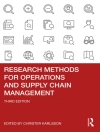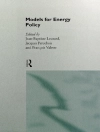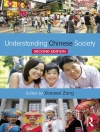‘One of the great strengths of the book is that it illustrates how critical pedagogy might actually look and feel and be useful as an organizing principle in an educator′s life. The wonderful statements about empowering students, creating spaces for dialogue, and envisioning moments of empancipation are hard to translate into real institutional settings. The authors are willing to open up their own areas of vulnerability by describing their efforts to encact critical pedagogy and ten refelecting on their missteps, disappointments, and blind spots.’
—Jo Sprague,
San José State University
In this autoethnographic work, authors Deanna L. Fassett and John T. Warren illustrate a synthesis of critical pedagogy and instructional communication, as both a field of study and a teaching philosophy.
Critical Communication Pedagogy is a poetic work that charts paradigmatic tensions in instructional communication research, articulates commitments underpinning critical communication pedagogy, and invites readers into self-reflection on their experiences as researchers, students, and teachers.
Key Features:
- Uses autoethnography to explore critical communication pedagogy: Readers are encouraged to be self-reflective about their own teaching and learning. Through layered, storied accounts, the authors invite readers to explore how to engage in the study and teaching of communication as constitutive of social injustice.
- Identifies shifting paradigms in instructional communication: By using the authors′ own experiences as a focal point, they review paradigmatic shifts in the study of instructional communication. This book legitimizes a burgeoning conversation about critical approaches to instructional communication research, validating critical communication pedagogy as a growing line of research and an area of growth in teaching practice.
- Evaluates critical communication pedagogy scholarship: This is the first book to help scholars unfamiliar with this paradigm learn how to read and evaluate this sort of work. The book identifies the commitments that undergird critical work that addresses communication and education. Moments of successful and failed critical communication pedagogy in their research, in their classrooms, and in their relationships are explored.
Intended Audience: This is an ideal text for advanced undergraduate and graduate students studying instructional communication and communication pedagogy in courses such as Communication in the Classroom, Special Classroom Populations, Communication Needs of At-Risk Students, and Critical/Performative Pedagogy.
Зміст
Introduction: Stolen Moments in Critical Pedagogy and Communication
Interlude: How to Read this Book (or, My Dad Read This Book)
1: Critical Communication Pedagogy: Shifting Paradigms
2: Naming a Critical Communication Pedagogy
3: Critical Communication Pedagogy in the Classroom
4: Writing, Researching, and Living: Critical Communication Pedagogy as Reflexivity
5: Compromise and Commitment: Critical Communication Pedagogy as Praxis
6: Nurturing Tension: Sustaining Hopeful Critical Communication Pedagogy
Conclusion: Grappling with Contradictions
Appendix
References
Index
Про автора
John T. Warren (Late) was professor of Speech Communication at Southern Illinois University, Carbondale. His major research and teaching centered in Communication Pedagogy, Performance Studies, and Communication and Critical/Cultural Studies. He was the author of numerous books including Performing Purity: Whiteness, Pedagogy and the Reconstitution of Power; Casting Gender: Women and Performance in Intercultural Contexts; Critical Communication Pedagogy; and the SAGE Handbook of Communication and Instruction. He also authored articles for several education and communication studies journals, including Educational Theory, Communication Education, and Text and Performance Quarterly.












